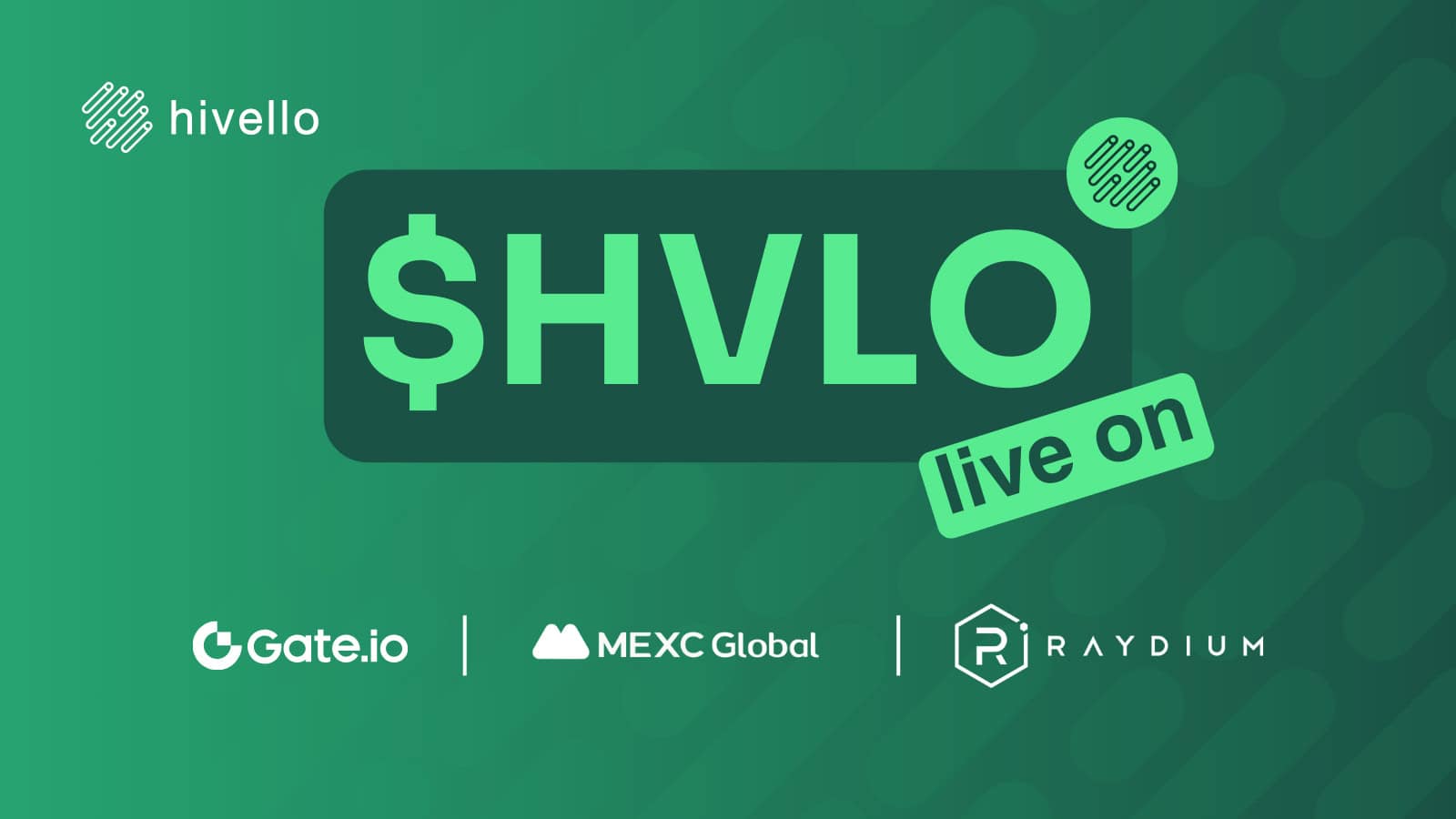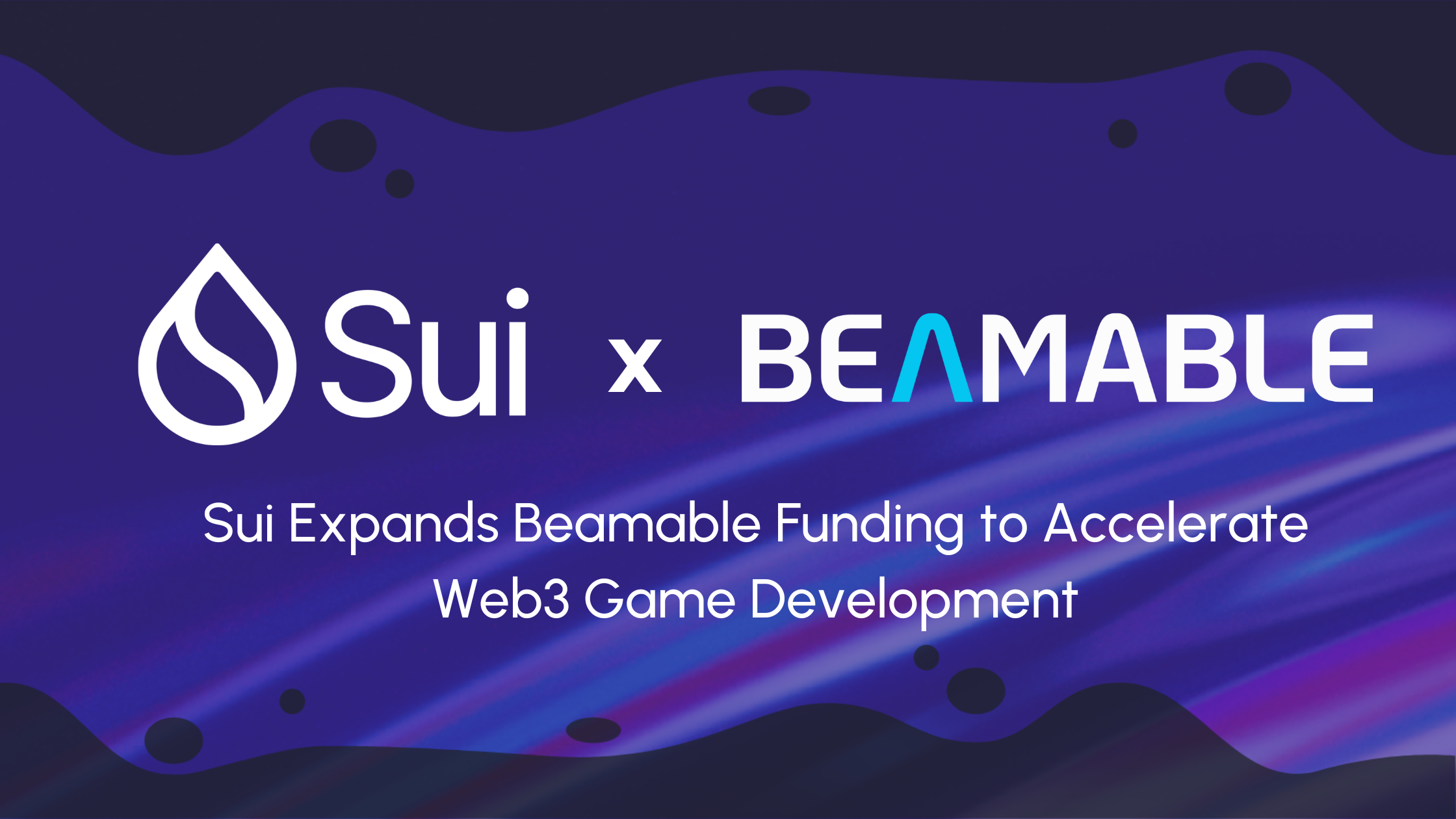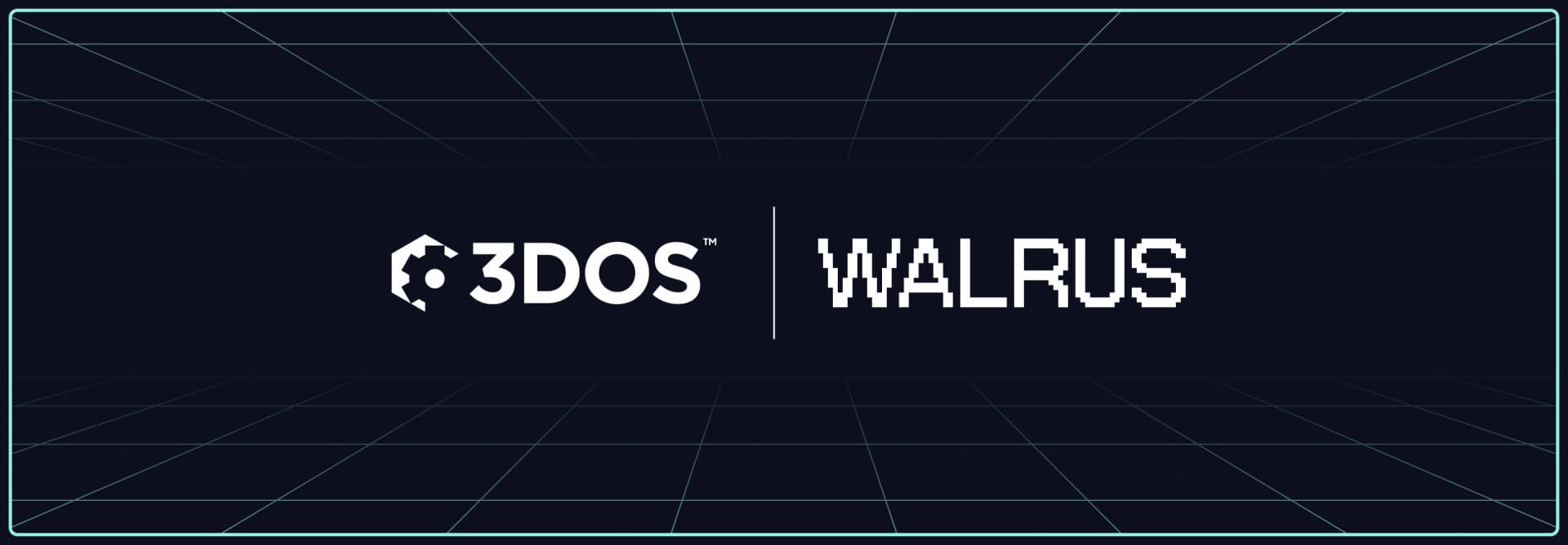Latest DePIN Funding News

9 months ago
Decentralizing Infrastructure: The Rise of DePINs
Decentralized Physical Infrastructure Networks (DePINs) are revolutionizing the management of both digital and physical infrastructure by enabling individuals to contribute and monetize various resources, such as wireless coverage, mapping data, GPS positioning, and IoT device data. This innovative approach leverages blockchain technology and cryptoeconomic incentives, allowing participants to earn rewards for their contributions. The article highlights four key projects within the DePIN space: Helium, Hivemapper, GEODNET, and AYDO, each focusing on different aspects of decentralized infrastructure, including wireless communication, mapping, positioning, and IoT data-sharing.
While all these projects share the DePIN framework, their participation models and hardware requirements vary significantly. Helium allows users to deploy hotspots for decentralized wireless networks, while Hivemapper incentivizes the installation of dashcams for real-time mapping data. GEODNET enhances GPS accuracy through rooftop satellite miners, and AYDO stands out by enabling users to connect existing IoT devices to blockchain networks without the need for proprietary hardware. This flexibility positions AYDO as a unique player in the DePIN landscape, catering to a broader audience by supporting widely used IoT protocols.
Despite the promise of DePINs, several challenges remain. Issues such as hardware accessibility, market demand for data, security, and regulatory uncertainty could hinder the widespread adoption of these models. The success of IoT-focused DePINs will depend on their ability to ensure interoperability, economic sustainability, and compliance with privacy regulations. As the DePIN ecosystem continues to evolve, it is evident that different models may cater to various sectors, offering a compelling alternative to traditional corporate-controlled infrastructure, while empowering individuals with greater control over their contributions and rewards.

9 months ago
Litecoin, Jito, and Bittensor Experience Significant Price Rallies Amid Market Recovery
In the past week, Litecoin (LTC), Jito (JTO), and Bittensor (TAO) have experienced significant price rallies, with gains ranging from 17% to 22%, according to CoinGecko data. This upward momentum can be attributed to Bitcoin's resilience amid various macroeconomic factors, including the U.S. Consumer Price Index (CPI) and tariff announcements. As Bitcoin continues to stabilize, altcoins like LTC, JTO, and TAO are also benefiting from this market-wide recovery, with LTC gaining 2.53%, JTO increasing by 5.68%, and TAO rising by 2.98% on the same day, as reported by TradingView.
On-chain analysis from Santiment reveals that Litecoin's total open interest has surged to $416.87 million, indicating increased trader activity. Similarly, Jito has seen a rise in social dominance and trade volume, reflecting heightened interest from both institutional and retail traders. Meanwhile, Bittensor's trading volume has remained steady, although recent data suggests a bearish sentiment among derivatives traders. The technical indicators for LTC, JTO, and TAO all point towards potential further gains, with LTC aiming to retest its 2025 peak, while JTO and TAO also have key resistance levels to watch.
Market sentiment has been bolstered by speculation around potential ETF approvals, particularly for Litecoin, which is seen as having a 90% chance of approval according to Bloomberg's Eric Balchunas. This anticipation has been a significant driver for LTC's recent performance. Additionally, the upcoming Dynamic TAO update, likened to Ethereum's Merge, has generated excitement within the Bittensor community, further contributing to its price rally. As the crypto market continues to evolve, these developments highlight the dynamic nature of altcoin trading and the factors influencing investor sentiment.

9 months ago
Teneo Protocol Secures $3 Million Funding to Democratize Social Media Data Access
Teneo Protocol, a decentralized protocol aimed at democratizing access to social media data, has successfully secured $3 million in seed funding. This funding round was led by notable venture capital firms RockawayX and Borderless, with additional participation from Generative Ventures and others. The investment will support Teneo's mission to transform the data economy by incentivizing users to unlock public social media data. With a growing global network of several million users, Teneo is poised to make significant strides in facilitating access to valuable data resources that are increasingly restricted by major social media platforms.
The challenge of accessing social media data has intensified as platforms like Reddit begin to charge businesses for data access, creating barriers that could stifle innovation in artificial intelligence (AI) and other sectors. Teneo aims to address this issue through its Community Node, a Web3 browser extension that allows users to collect public posts from platforms such as X (formerly Twitter) and Reddit. Users are rewarded with Teneo Points for their contributions, which can later be converted into Teneo Tokens once the network's native token is launched. This initiative not only enhances data accessibility but also opens new avenues for industries that rely on real-time social data, including AI, finance, and marketing.
The Teneo Community Node has already gained traction, boasting over 3.9 million users across 191 countries, with more than 1.1 million users connecting their digital wallets to the platform. Investors express enthusiasm for Teneo's potential to reshape the data landscape, emphasizing the importance of decentralized solutions in the evolving data economy. As Teneo continues to develop its platform, it aims to empower individuals by returning data ownership to the people, fostering a community-driven approach to data utilization and innovation in the digital age.

9 months ago
Fetch.AI Launches Smart Contract for IBC CUDOS Reclamation
Fetch.AI has launched a smart contract today, February 12, aimed at helping users reclaim their IBC CUDOS tokens. This development is a significant step in enhancing cross-chain asset management and showcases the ongoing collaboration between Fetch.AI and CUDOS as part of the ASI Alliance. The new smart contract addresses the issue faced by several CUDOS holders who were unable to return their tokens to the CUDOS blockchain before it ceased operations. By utilizing this contract, users can swap their stranded CUDOS for Fetch.AI's FET tokens at a fixed ratio of 118.344, simplifying the process significantly.
The smart contract offers a user-friendly interface that eliminates the complex manual steps traditionally associated with CosmWasm contract interactions. Users can reclaim their tokens with a single click within the ASI chain, benefiting from automatic conversion at a transparent rate. This functionality is integrated into Fetch.AI's Companion dApp, which enhances the user experience within the ASI ecosystem. To reclaim their IBC CUDOS, users must transfer their tokens from Archway or Osmosis to the ASI chain, connect their ASI wallet, and execute the reclaim process, which will automatically convert their tokens to FET.
The collaboration between Fetch.AI and CUDOS is part of a broader initiative to democratize cloud computing and promote decentralized solutions that challenge the dominance of major tech companies. The ASI Alliance, which includes partners like Ocean Protocol and SingularityNET, is committed to advancing decentralized compute solutions. As part of this initiative, Fetch.AI will provide detailed instructions and documentation on their dApp on February 13, further facilitating the reclamation process for users and enhancing the overall decentralized computing landscape.

9 months ago
Hivello Launches $HVLO Token on Raydium, Expanding Decentralized Opportunities
Hivello, a decentralized physical infrastructure network (DePIN) aggregator, has officially launched its $HVLO token on Raydium, following successful listings on MEXC and Gate.io. This launch, which took place on February 12th, 2025, at 11:00 AM UTC, marks a significant step in Hivello's mission to promote decentralization and accessibility in the blockchain space. The HVLO token is designed to empower users within Hivello's ecosystem, facilitating rewards, staking, and participation in various DePIN networks. By utilizing Raydium, a decentralized exchange on the Solana blockchain, Hivello aims to broaden the reach of its token, making it available to a larger audience.
The launch of the $HVLO token on multiple exchanges offers numerous benefits to users. Staking $HVLO through Hivello's platform can yield an impressive annual percentage yield (APY) of 88%, encouraging user participation in decentralized compute mining. This initiative not only enhances the utility of the token but also fosters a more engaged community. Hivello is committed to expanding its partnerships with DePIN protocols and AI compute networks, which will further drive the adoption of decentralized infrastructure and create more opportunities for users to earn rewards.
Co-Founder Dom Carosa expressed enthusiasm about the launch, emphasizing the importance of providing a decentralized trading option for the community. As Hivello continues to scale its network of decentralized node operators, it aims to simplify the process for users globally to contribute to DePIN. With a focus on accessibility and education, Hivello is dedicated to making decentralized technology more understandable and beneficial for everyone involved in the ecosystem.

9 months ago
Democratizing Quantum Computing: The Phoenix and Origin Quantum Partnership
A groundbreaking collaboration is underway between Phoenix, a leader in decentralized artificial intelligence, and Origin Quantum, a pioneer in quantum computing. This partnership aims to transform quantum computing from a complex and esoteric field into a practical tool that is accessible to everyday technologists. By integrating Origin Quantum's 72-qubit superconducting chip into Phoenix's DePIN network, the collaboration seeks to unlock powerful computational capabilities, making advanced quantum applications as easy to use as mobile apps. This integration promises to simplify the complexities of quantum systems, allowing users to harness their potential without needing specialized knowledge.
At the heart of this initiative is Origin Quantum's "Wukong" quantum computer, which boasts 198 qubits and is designed to tackle real-world challenges across various fields, including biosciences, material engineering, and artificial intelligence. The technology is already making waves in industries, providing live solutions that enhance processes from quantum biosciences to smart manufacturing optimizations. Complementing this is the upcoming launch of QuantumVM, an intuitive platform set to debut in early Q2 2025. QuantumVM will empower users to execute quantum computations through a user-friendly web interface, significantly reducing technical barriers and costs associated with quantum technology.
The implications of this partnership extend far beyond mere accessibility. As quantum computing continues to evolve, it is projected to revolutionize industries such as healthcare, finance, and logistics by optimizing complex systems and processes. Moreover, the democratization of quantum technology is crucial for fostering innovation, enabling smaller companies and independent developers to contribute to advancements in technology. This collaboration between Phoenix and Origin Quantum is not just about making quantum computing accessible; it is about reshaping the digital landscape and paving the way for a future where the impossible becomes routine.

9 months ago
Beamable Expands Web3 Gaming with Sui Foundation Grant
Beamable has made significant strides in the Web3 gaming sector by securing a grant from the Sui Foundation. This partnership aims to enhance blockchain integration, making it easier for game developers to adopt Web3 technologies. The initiative promises to improve accessibility, scalability, and the overall power of gaming experiences. Key features being introduced include Stashed Wallets for seamless Web3 access, zkLogin for easy wallet creation via Google or Twitch, and Sponsored Transactions that simplify blockchain interactions by allowing sponsored transactions. Additionally, advanced NFT support and a Sui Kiosk for in-game asset trading will empower developers to create more dynamic and engaging games.
Warped Games is among the first studios to leverage these new capabilities, particularly in their upcoming Unreal Engine title, Warped Universe. Scott Brown, the President of Warped Games, expressed enthusiasm about the partnership, stating that Beamable and Sui significantly ease the development process, allowing them to focus on delivering quality experiences to players. This collaboration exemplifies how the integration of blockchain technology can enhance game development, providing tools that streamline processes and foster creativity.
As the Web3 gaming landscape evolves, developers are encouraged to explore these new features and integrate Sui-powered blockchain functionalities into their projects. The future of decentralized gaming experiences is bright, and with initiatives like this, the industry is poised for transformative growth. Game developers looking to stay ahead of the curve should consider these advancements as they embark on their next projects, marking the beginning of a new era in gaming innovation.

9 months ago
3DOS Partners with Walrus to Revolutionize Decentralized Manufacturing
3DOS, the pioneering decentralized manufacturing network, has recently partnered with Walrus to enhance its ecosystem of AI-driven manufacturing tools and 3D printing designs. This collaboration follows 3DOS's previous announcement regarding its foundation on the Sui blockchain. The partnership aims to decentralize and localize global manufacturing, thereby improving supply chain resilience and accessibility. By leveraging Walrus's decentralized storage solution, 3DOS is set to secure its data and provide a robust platform for its innovative manufacturing services.
In line with its mission, 3DOS is launching an AI-powered Chrome extension that will scrape and index global manufacturing capacities beyond just 3D printing. This tool will gather real-time data on various manufacturing services, including CNC machining and injection molding, allowing users to access local production options instantly. The data collected will be securely stored on Walrus’s decentralized network, ensuring it is tamper-proof and censorship-resistant. This integration of AI and decentralized storage is poised to create the largest open manufacturing index, making it easier for businesses and individuals to find local manufacturing resources.
Additionally, 3DOS allows users to upload, tokenize, and monetize their 3D printing designs as NFTs on the Sui blockchain. This feature not only protects intellectual property but also facilitates royalty payments for creators. The collaboration with Walrus enhances the integrity and accessibility of manufacturing data, ensuring global redundancy and uninterrupted access. As 3DOS continues to innovate, it aims to redefine the landscape of global manufacturing by connecting AI, decentralized storage, and tokenized designs, ultimately revolutionizing the industry.

9 months ago
The Rise of Real World Assets and AI Agents in Cryptocurrency
The cryptocurrency market is witnessing significant shifts with the emergence of two key sectors: Real World Assets (RWA) and AI Agents. These sectors are not only introducing substantial value by bridging traditional finance with blockchain technology but are also redefining the narrative of cryptocurrency from mere speculation to utility-driven assets. As both sectors flirt with the trillion-dollar asset class, they showcase the potential to reshape the future of Web3, despite the volatility inherent in the crypto space.
Recent trends indicate contrasting fortunes for RWA and AI Agents. While the AI Agents sector has seen a dramatic decline in market value, dropping from over $20 billion to approximately $6.2 billion in just a few weeks, the RWA sector has demonstrated resilience and continued growth. RWA allows for the tokenization of traditional assets such as real estate and stocks, providing tangible value to blockchain platforms. Projects like Ondo Finance and MANTRA Chain are leading the charge in the RWA space, while Virtuals.io stands out in the AI Agents sector, highlighting the innovative capabilities of these technologies.
The growing influence of RWAs and AI Agents is indicative of a broader shift in blockchain technology usage. By facilitating the tokenization of both digital and physical assets, RWAs are paving the way for traditional finance to integrate with blockchain. Simultaneously, AI Agents are enhancing the efficiency of decentralized finance (DeFi) through automation and optimization. Together, these sectors are creating new opportunities for developers and financial institutions, moving the crypto market towards a more sustainable, utility-driven future. As the landscape evolves, the potential for institutional investment in these areas appears promising, signaling a maturation of the blockchain industry that prioritizes real-world applications and value.

9 months ago
Weaver Labs Updates Roadmap for Adeno Token in 2025
In the rapidly evolving telecommunications sector, innovation often faces significant hurdles. Despite the potential of blockchain technology to revolutionize network infrastructure, many decentralized projects, such as Helium and XNET, have had to pivot from ambitious plans involving 5G deployment to more traditional solutions like Wi-Fi. These shifts highlight the industry's resistance to change and the challenges of integrating new technologies into existing frameworks. As companies like Nova Labs' Helium network adapt to user experience and implementation difficulties, the need for a pragmatic approach becomes clear, especially for startups like Weaver Labs, which is focused on creating an open marketplace for telecom infrastructure through its Adeno Token.
Weaver Labs recognizes the slow pace of change within the telecom industry, particularly regarding shared infrastructure and open networks. The company's updated roadmap for 2025 emphasizes practical steps that align with current market realities while maintaining a long-term vision. Unlike many DePIN projects that struggle with product-market fit, Adeno aims to empower existing telecom networks rather than disrupt them. By integrating with current infrastructure through its Network-as-a-Service (NaaS) model, Adeno seeks to create a sustainable ecosystem where token use is driven by real-world demand rather than speculation.
Looking ahead, Weaver Labs plans to list the Adeno Token on centralized exchanges in 2025, focusing on private telecommunications networks and testing new use cases that leverage blockchain technology. Collaborations with partners like Streamr and Liquid aim to enhance data transmission and infrastructure sharing, particularly in underserved regions. By prioritizing partnerships and practical applications, Weaver Labs is positioning itself to navigate the complexities of the telecom landscape while fostering a community that supports the future of decentralized telecommunications.
Signup for latest DePIN news and updates